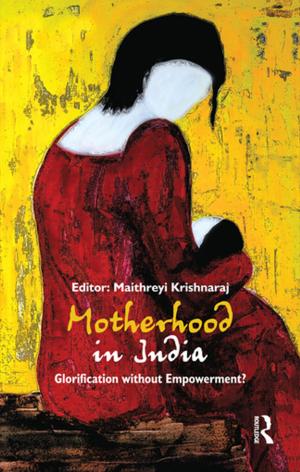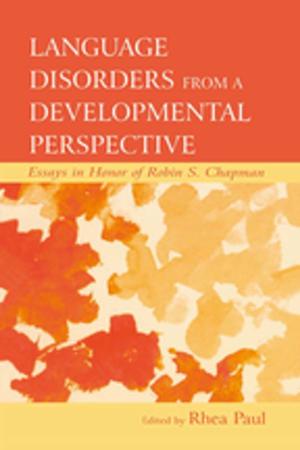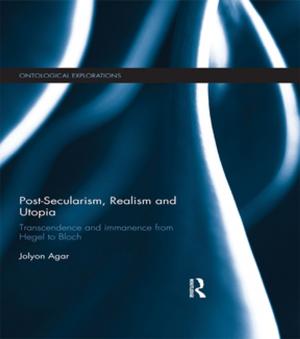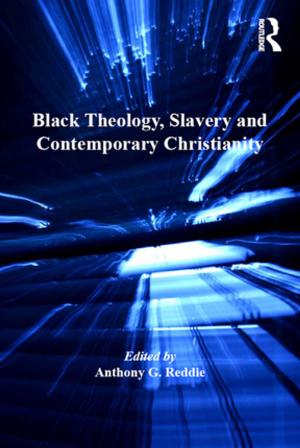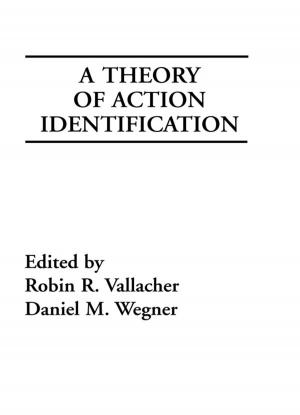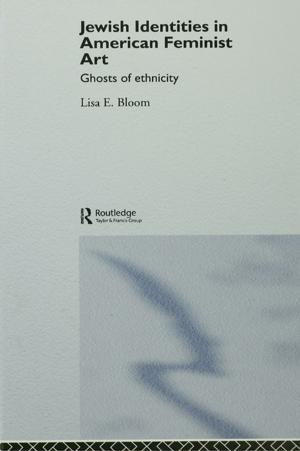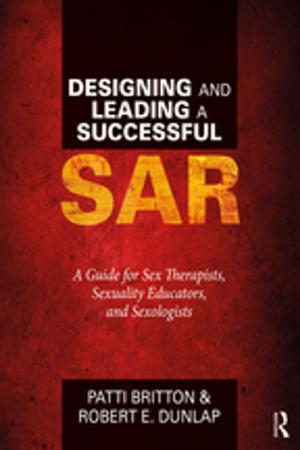Contemporary Ukraine on the Cultural Map of Europe
Nonfiction, Social & Cultural Studies, Social Science, Cultural Studies, Ethnic Studies| Author: | Larissa M. L. Zaleska Onyshkevych, Maria G. Rewakowicz | ISBN: | 9781317473770 |
| Publisher: | Taylor and Francis | Publication: | December 18, 2014 |
| Imprint: | Routledge | Language: | English |
| Author: | Larissa M. L. Zaleska Onyshkevych, Maria G. Rewakowicz |
| ISBN: | 9781317473770 |
| Publisher: | Taylor and Francis |
| Publication: | December 18, 2014 |
| Imprint: | Routledge |
| Language: | English |
The concept of a 'return to Europe' has been integral to the movement for Ukrainian national rebirth since the nineteenth century. While the goal of a more fully reformed politics remains elusive, numerous expressions of Ukrainian culture continue to develop in the European spirit. This wide-ranging book explores Ukraine's European cultural connection, especially as it has been reestablished since the country achieved independence in 1991. The contributors discusses many aspects of Ukraine's contemporary culture - history, politics, and religion in Part I; literary culture in Part II; and language, popular culture, and the arts in Part III. What emerges is a fascinating picture of a young country grappling with its divided past and its colonial heritage, yet asserting its voice and preferences amid the diverse and at times conflicting realities of the contemporary political scene. Europe becomes a powerful point of reference, a measure against which the situation in post-independence Ukraine is gouged and debated. This framework allows for a better understanding of the complexities deeply ingrained in the social fabric of Ukrainian society.
The concept of a 'return to Europe' has been integral to the movement for Ukrainian national rebirth since the nineteenth century. While the goal of a more fully reformed politics remains elusive, numerous expressions of Ukrainian culture continue to develop in the European spirit. This wide-ranging book explores Ukraine's European cultural connection, especially as it has been reestablished since the country achieved independence in 1991. The contributors discusses many aspects of Ukraine's contemporary culture - history, politics, and religion in Part I; literary culture in Part II; and language, popular culture, and the arts in Part III. What emerges is a fascinating picture of a young country grappling with its divided past and its colonial heritage, yet asserting its voice and preferences amid the diverse and at times conflicting realities of the contemporary political scene. Europe becomes a powerful point of reference, a measure against which the situation in post-independence Ukraine is gouged and debated. This framework allows for a better understanding of the complexities deeply ingrained in the social fabric of Ukrainian society.

